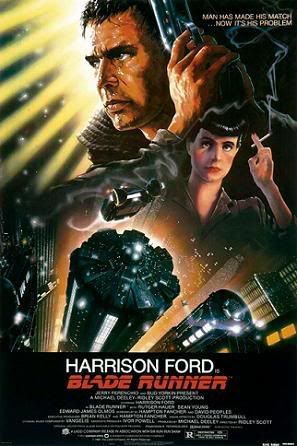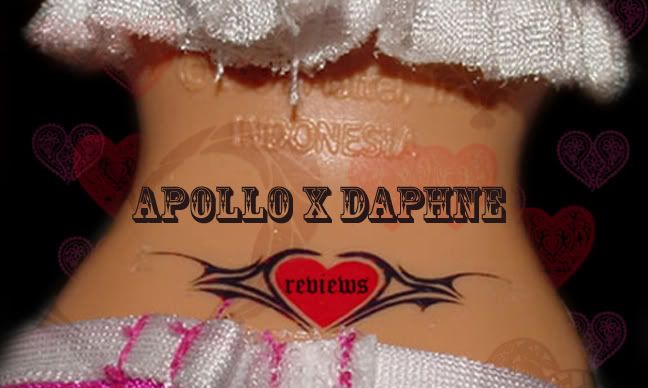
Blade Runner is such a beautiful and controversial film, and so much has been said about it, that I don't have too much left to say. However, since it serves as a model for sci-fi today, there is nothing lost in discussing it.
First, props to the amazing setting and cinematography. The film looks fresh even today (though perhaps that's the result of my watching the Director's Cut), as do the special effects and the creation of humanity's future dystopian society.
Rick Deckard (Harrison Ford) is a blade runner, or an assassin of highly advanced robots called replicants which only have four-year life spans and are illegal on earth. Though he is retired, when four of them come to earth--Zhora, Pris, Roy, and Leon--Deckard is reenlisted to find and "retire" them.
The dystopian world is portrayed beautifully, and the Voight-Kampff tests are especially creepy and effective in breaking down the walls between human and android--because that is the main question the film poses: what exactly does it mean to be human?
Rachel (Sean Young) is the ultimate example of the blurry definition of humanity. She appears and acts human, and it takes 100+ questions in the Voight-Kampff test for Deckard to determine that she is a replicant. There is even room for speculation about whether or not Deckard is a replicant. My one compaint regarding the Rachel-Rick relationship is that though I understand that Rachel didn't know how to express her love, I could have done without the psuedo-rape scene.
The film is rich in depth and complexity as the replicants struggle to sort out their feelings. They are torn between killing to stay alive and feeling sympathetic towards humans; they don't know how to love, and struggle to express it. They question what they are--human or machine--and this confusing transience causes them to lash out in violent and unpredictable ways.
I also appreciated the appropriate characterizations in such a dystopian society; many archetypes are flipped in their heads. Deckard, the hero, is an anti-hero; he's is billed as a hard-boiled cop, but most of the time he's just running for his life and has no clue what to do. Roy, such a great villain because of his creepy unpredictability and complex motivations, does an inexplicably good thing at the end of his life.
The largest problem with the film is the pacing. There are bursts of action followed by long stretches of noir film homage, shady alleys and Ford looking appropriately pensive doing "deep thinking"; after its release, this complaint proved to be the largest, so I don't want to hear adults talking about how "us kids now-a-days don't have no attention span."
Apparently in the original version there were much larger problems, such as voice-overs towards the end explicitly stating Deckard's feelings during the somber final scene, in an attempt to "simplify" and broaden the audience i.e. an Explanation Included For All Those Stupid Americans Because They Obviously Won't Get It, or rather a last-ditch attempt to make the film more popular. There is also a scene included of Rachel and Deckard cruising on a gorgeously sunny road, a sharp and inappropriate contrast to the truly dark end of the tale where Deckard's former blade-running mate, Gaff (who communicates primarily through origami) leaves a paper swan at Deckard's apartment, which can be interpreted two ways--he is letting Deckard flee with Rachel and turning a blind eye, or he is letting Deckard know that he will be following them.
There is so much ambiguity in the film, echoing the cold amorality of the world and of the protagonist, that it's a wonder anything was created that can be taken in so many ways; and therein lies the true beauty of Blade Runner.
-elln

No comments:
Post a Comment